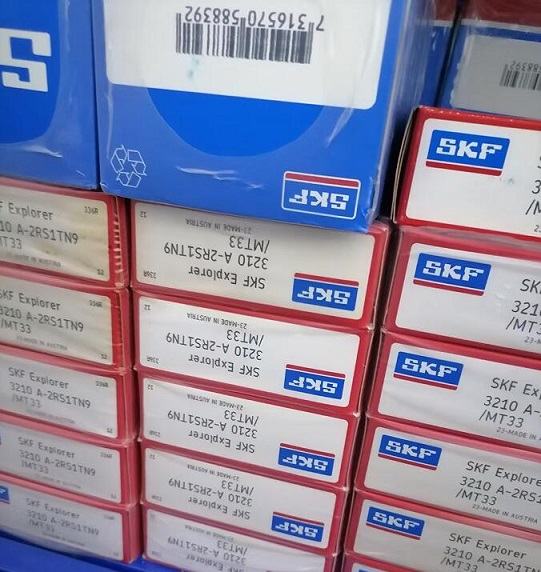
 News
News
Bearings are critical components in gearboxes, serving to support rotating shafts, reduce friction, and ensure smooth power transmission. Gearboxes, widely used in automotive, industrial machinery, and aerospace applications, rely on high-performance bearings to maintain efficiency, durability, and reliability.
Functions of Bearings in Gearboxes
Load Support – Bearings carry radial and axial loads generated by gears, ensuring stable shaft rotation.
Friction Reduction – By minimizing contact friction, bearings enhance energy efficiency and reduce wear.
Positioning Accuracy – Precision bearings maintain gear alignment, preventing misalignment-induced failures.
Vibration and Noise Damping – High-quality bearings reduce gearbox noise and vibrations.
Common Bearing Types Used in Gearboxes
Ball Bearings – Suitable for moderate radial and axial loads (e.g., deep groove ball bearings).
SKF Roller Bearings (Cylindrical, Tapered, Spherical) – Handle heavier loads; tapered roller bearings are common in automotive transmissions.
SKF Needle Bearings – Compact design for limited space applications.
SKF Thrust Bearings – Manage axial loads in helical or bevel gear systems.

Key Considerations for Bearing Selection
Load Capacity – Must withstand operational forces.
Speed Rating – High-speed gearboxes require bearings with low friction and heat generation.
Lubrication – Proper lubrication (oil or grease) extends bearing life.
Material & Coating – Stainless steel or ceramic bearings for harsh environments.
Challenges & Solutions
Heat Generation – Optimized lubrication and cooling systems prevent overheating.
Wear & Fatigue – Regular maintenance and high-grade materials improve longevity.
Contamination – Sealed bearings protect against dust and debris.
SKF Bearings are indispensable in gearboxes, directly impacting performance and lifespan. Advances in bearing technology, such as hybrid ceramic bearings and smart sensor-equipped designs, continue to enhance gearbox efficiency. Proper selection, installation, and maintenance ensure optimal functionality in demanding applications.